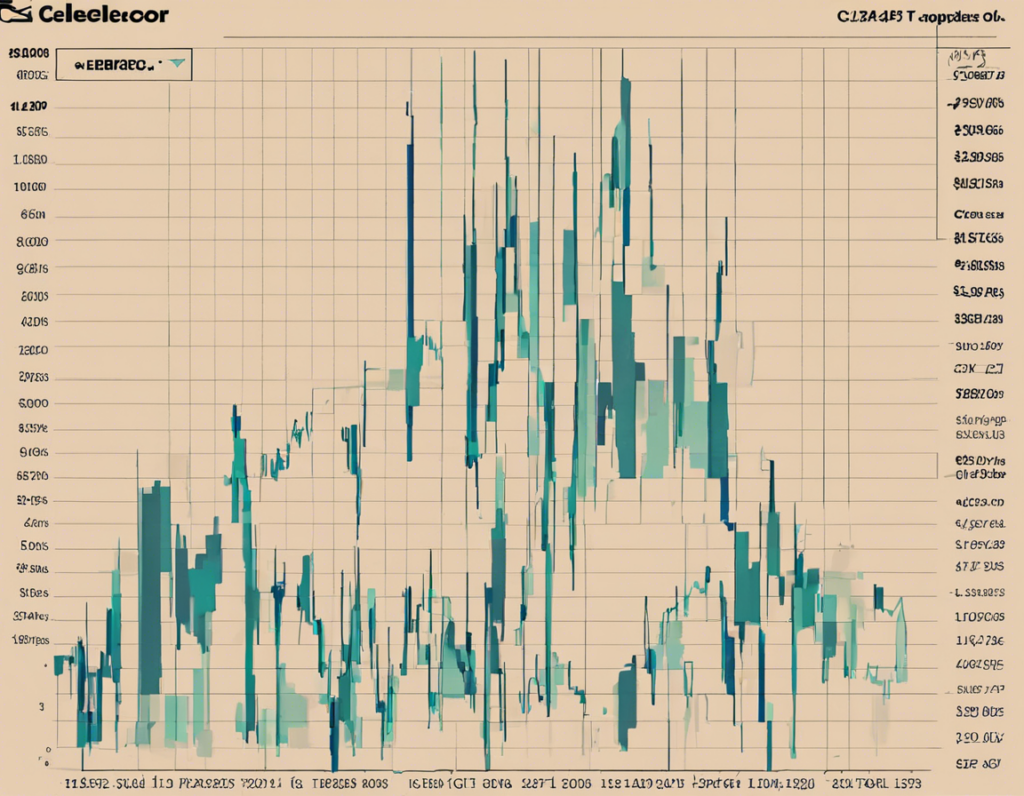Are you considering investing in Cellecor and wondering about the share price analysis? In this comprehensive guide, we will take a closer look at Cellecor’s share price movements, factors affecting share prices, how to analyze share prices, and more. Let’s dive in.
Understanding Cellecor
Cellecor is a technology company specializing in the development of cellular communication solutions. The company has seen significant growth in recent years due to its innovative products and services in the telecommunications industry. As a potential investor, it is important to understand the key aspects of Cellecor’s business that can impact its share price.
Share Price Movements
Cellecor’s share price has experienced fluctuations in response to various internal and external factors. Factors that can influence share prices include company performance, industry trends, economic conditions, regulatory changes, and market sentiment. By monitoring these factors, investors can gain insights into potential share price movements.
Factors Affecting Share Prices
1. Company Performance
The financial performance of Cellecor, including factors such as revenue growth, profit margins, and earnings per share, can significantly impact its share price. Investors often look at quarterly earnings reports and financial statements to assess the company’s health and potential for future growth.
2. Industry Trends
Changes in the telecommunications industry, such as advancements in technology, new competitors entering the market, or shifts in consumer preferences, can influence Cellecor’s share price. It is essential to stay informed about industry developments to anticipate potential impacts on the company.
3. Economic Conditions
Macroeconomic factors like interest rates, inflation, and unemployment rates can affect Cellecor’s share price. A strong economy generally boosts investor confidence and can lead to higher share prices, while economic downturns may have the opposite effect.
4. Regulatory Changes
Changes in regulations related to the telecommunications sector can impact Cellecor’s operations and financial performance. Keeping abreast of regulatory developments and their potential implications for the company is crucial for investors.
5. Market Sentiment
Investor sentiment and market trends can also influence Cellecor’s share price. Positive news about the company, industry, or broader market can drive share prices higher, while negative sentiments can lead to price declines.
How to Analyze Share Prices
1. Technical Analysis
Technical analysis involves studying historical price charts and trading volumes to identify patterns and trends that can help predict future share price movements. Popular technical indicators include moving averages, Relative Strength Index (RSI), and Bollinger Bands.
2. Fundamental Analysis
Fundamental analysis focuses on evaluating the intrinsic value of a company by analyzing its financial statements, market position, competition, and industry trends. Key metrics used in fundamental analysis include price-to-earnings (P/E) ratio, earnings per share (EPS), and return on equity (ROE).
3. Market Sentiment Analysis
Understanding market sentiment can provide insights into how investors perceive Cellecor and its prospects. Tools like social media sentiment analysis, news sentiment analysis, and surveys can help gauge investor sentiment and its potential impact on share prices.
FAQs
1. What factors can cause Cellecor’s share price to increase?
Potential factors that can drive Cellecor’s share price higher include strong earnings growth, new product launches, expansion into new markets, and favorable industry trends.
2. How can I stay updated on Cellecor’s share price movements?
You can monitor Cellecor’s share price in real-time through financial news websites, stock market apps, and online trading platforms. Additionally, signing up for email alerts or newsletters from financial sources can keep you informed.
3. Is it advisable to invest in Cellecor based solely on share price movements?
While monitoring share price movements is important, it is essential to conduct comprehensive research on Cellecor’s business fundamentals, industry outlook, and competitive positioning before making investment decisions.
4. What role does market volatility play in Cellecor’s share price?
Market volatility can impact Cellecor’s share price by creating short-term fluctuations driven by investor reactions to news, economic indicators, or geopolitical events. Long-term investors may focus on the company’s fundamentals rather than short-term price swings.
5. How can I assess the risk associated with investing in Cellecor?
Risk assessment in investing involves evaluating factors like market risk, industry risk, company-specific risk, and macroeconomic risk. Tools like risk-adjusted return calculations and scenario analysis can help assess the risk-return profile of investing in Cellecor.
In conclusion, analyzing Cellecor’s share price involves understanding the company’s business fundamentals, industry dynamics, market conditions, and investor sentiment. By employing a combination of technical analysis, fundamental analysis, and market sentiment analysis, investors can make informed decisions about investing in Cellecor. Remember that investing in the stock market carries inherent risks, and it is advisable to seek guidance from financial advisors before making investment decisions.
